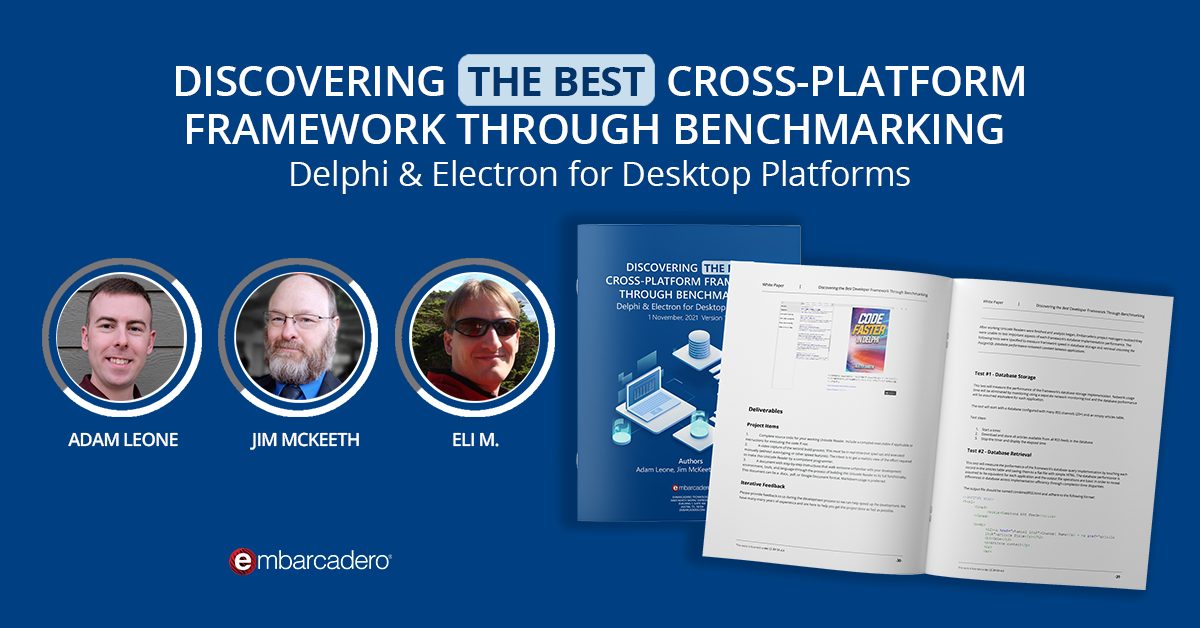
Hello C++ Developers,
We have some really great C++ posts on LearnCPlusPlus.org with examples about Path Manipulation Routines that can be used in your C++ Builder Windows applications or your Mobile application, games, or may help to extend your C++ knowledge by the given different methods below.
If you are new to RAD Studio, we think these posts may help you much as a rapid introduction to programming in C++ and C++ IDE if you’re a beginner, all the way to the most robust, modern, and latest techniques for those more experienced with the language or for those who are perhaps wanting to expand their knowledge with the most up-to-date features, routines, and methodologies. The new RAD Studio 11, C++ Builder 11, Delphi 11 are released with great new features and according to our tests, most of the examples from LearnCPlusPlus.org are working well with the latest RADS 11.
C++ Builder has a lot of specific methods in its SysUtils library that are included in VCL and FMX libraries. Some of these are grouped as Path Manipulation Routines which allow users to edit, extract, get and set drive name, directory name, file name, and file extensions. These methods are combined in Vcl.FileCtrl, System.IOUtils, System.SysUtils libraries. These all methods are easy to use and easy to get or set file path strings in that operating system. These can be used with other component properties like FileName property of OpenDialog, SaveDialog components. We can also check drives, files, or directories if they exist or not in that given path. And we can combine two path strings as a new path string. C++ Builder is very powerful in these kinds of operations with the path strings.
Table of Contents
What kind of C++ optimization questions are we answering?
- What do we mean by optimization in arithmetic operations?
- How can I optimize my equations or functions?
- Which arithmetic operation is faster than another one?
- Where should I optimize?
What kind of C++ path and file questions are we answering?
- What is the difference between the Dir, Directory and the Folder terms?
- What is a Drive?
- What is a Directory?
- What is a Path?
- What does Full Path mean?
- What does Absolute Path mean?
- What is the Current Path?
- What is a Short Path?
- What does Relative Path mean?
- How can I get the Home Path of the System?
- How we can use GetHomePath Method in C++?
- How can I easily find the location of the Roaming Directory?
- How can I check if a Directory on Windows is Empty or Not?
- How can I use IsEmpty() Method on Directories?
What sort of questions about Windows Environment Variables have we answered?
- How can I get a Get Environment Variable of the System?
- Which Environment Variables can I retrieve?
- How we can use GetEnvironmentVariable Method?
- How can I easily find the location of the Temp Directory?
- How can I easily get the location of the Installed Windows Directory?
- How can I get Computer Name in Windows?
- How can I get Processor (CPU) specifications?
- How can I get User Name?
- How can I get User Domain?
- How can I get Session Name?
- How can I get information about the ALLUSERSPROFILE environment variable?
- How can I get information about the APPDATA environment variable?
- How can I get information about the CLIENTNAME environment variable?
- How can I get information about the COMMONPROGRAMFILES environment variable?
- How can I get information about the COMPUTERNAME environment variable?
- How can I get information about the COMSPEC environment variable?
- How can I get information about the HOMEDRIVE environment variable?
- How can I get information about the HOMEPATH environment variable?
- How can I get information about the LOGONSERVER environment variable?
- How can I get information about the NUMBER_OF_PROCESSORS environment variable?
- How can I get information about the OS environment variable?
- How can I get information about the PATH environment variable?
- How can I get information about the PATHEXT environment variable?
- How can I get information about the PROCESSOR_ARCHITECTURE environment variable?
- How can I get information about the PROCESSOR_IDENTIFIER environment variable?
- How can I get information about the PROCESSOR_LEVEL environment variable?
- How can I get information about the PROCESSOR_REVISION environment variable?
- How can I get information about the PROGRAMFILES environment variable?
- How can I get information about the SESSIONNAME environment variable?
- How can I get information about the SYSTEMDRIVE environment variable?
- How can I get information about the SYSTEMROOT environment variable?
- How can I get information about the TEMP environment variable?
- How can I get information about the TMP environment variable?
- How can I get information about the USERDOMAIN environment variable?
- How can I get information about the USERNAME environment variable?
- How can I get information about the USERPROFILE environment variable?
- How can I get information about the WINDIR environment variable?
What are some of our favorite C++ posts about optimization, file/foder manipulation and enviroment variables in C++?
We keep adding new topics about C++ in general and specific topics for C++ Builder, Dev-C++, and for the other C++ compilers. Please keep following our LearnCPlusPlus.org website for the latest posts and updates. Feel free to comment and share with your colleagues, students, members – knowledge is power, and knowledge shared is empowering.
Know more about set C++ and how this remarkable tool can help you store unique elements in a sorted way.

C++ Builder is the easiest and fastest C and C++ IDE for building simple or professional applications on the Windows, MacOS, iOS & Android operating systems. It is also easy for beginners to learn with its wide range of samples, tutorials, help files, and LSP support for code. RAD Studio’s C++ Builder version comes with the award-winning VCL framework for high-performance native Windows apps and the powerful FireMonkey (FMX) framework for cross-platform UIs.
There is a free C++ Builder Community Edition for students, beginners, and startups; it can be downloaded from here. For professional developers, there are Professional, Architect, or Enterprise versions of C++ Builder and there is a trial version you can download from here.
Design. Code. Compile. Deploy.
Start Free Trial Upgrade Today
Free Delphi Community Edition Free C++Builder Community Edition





